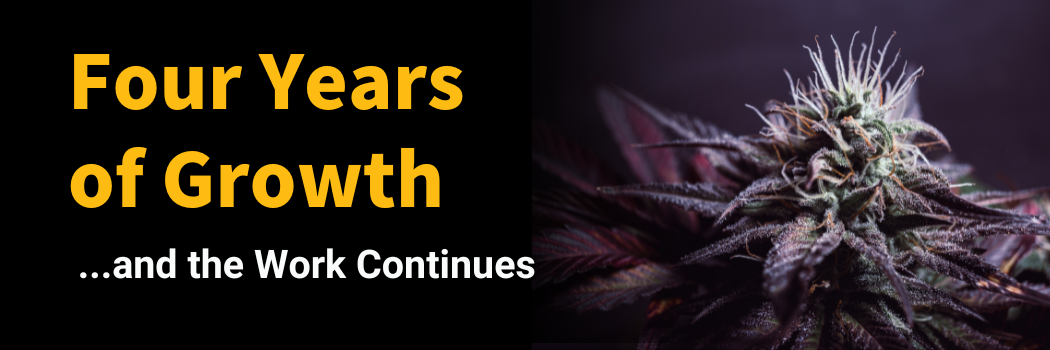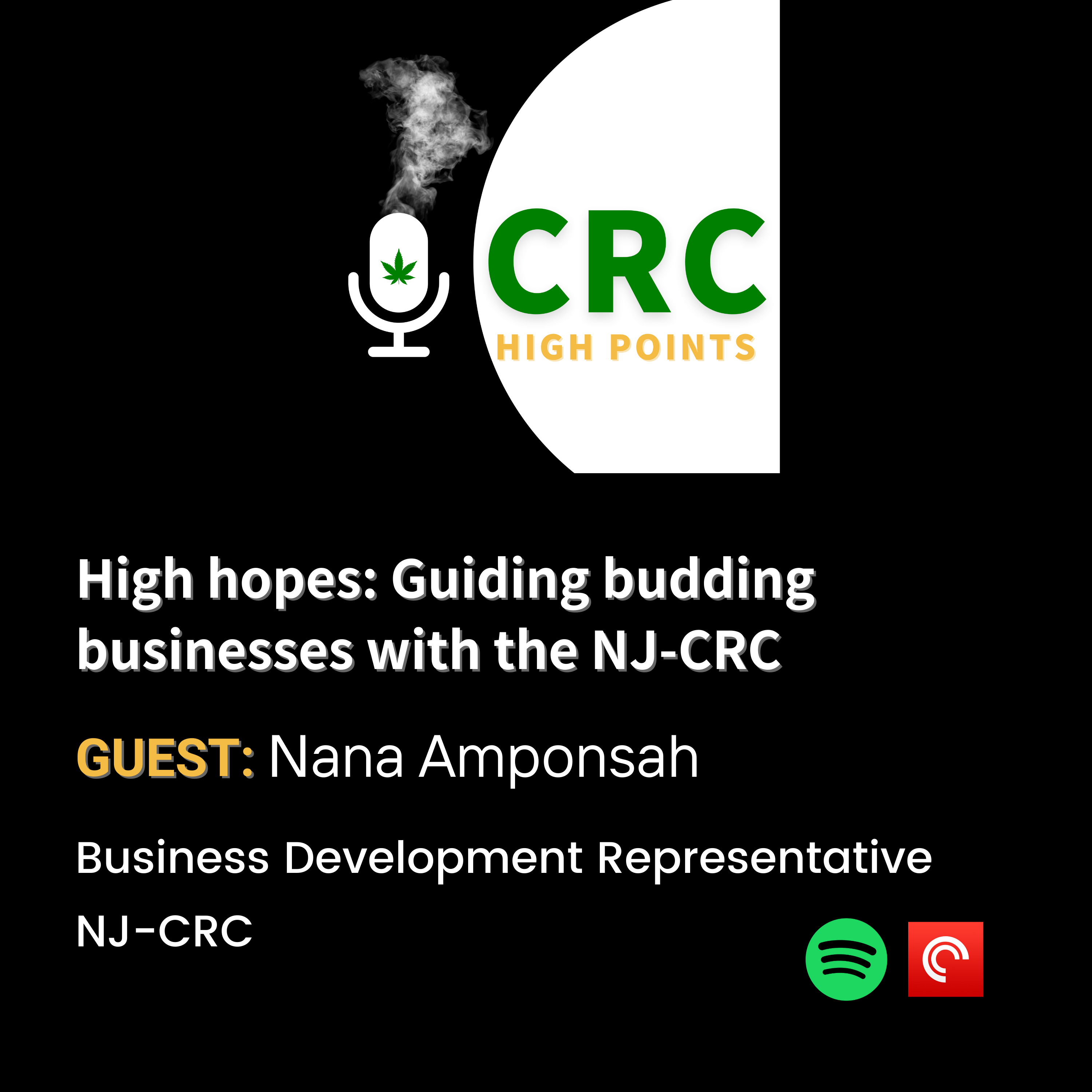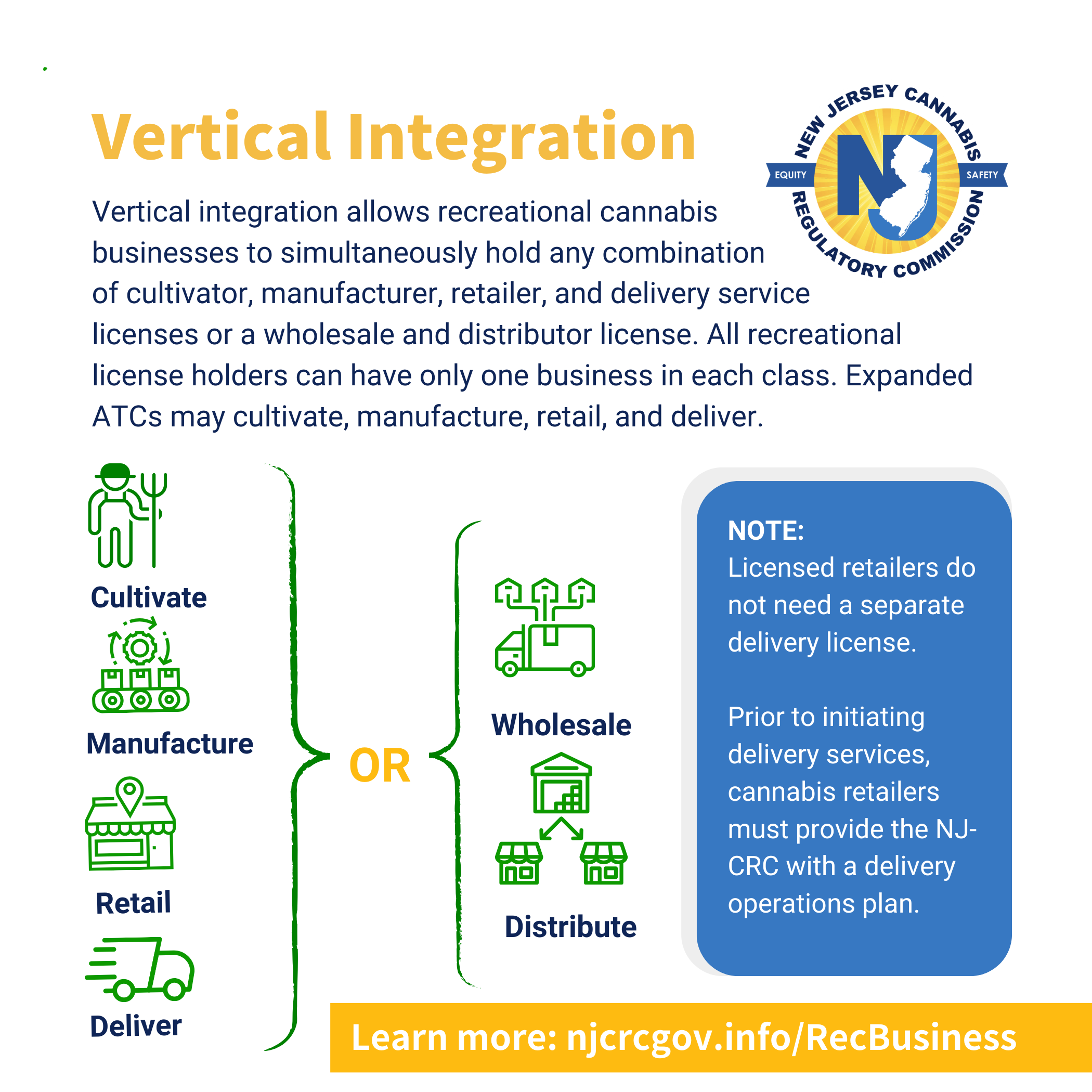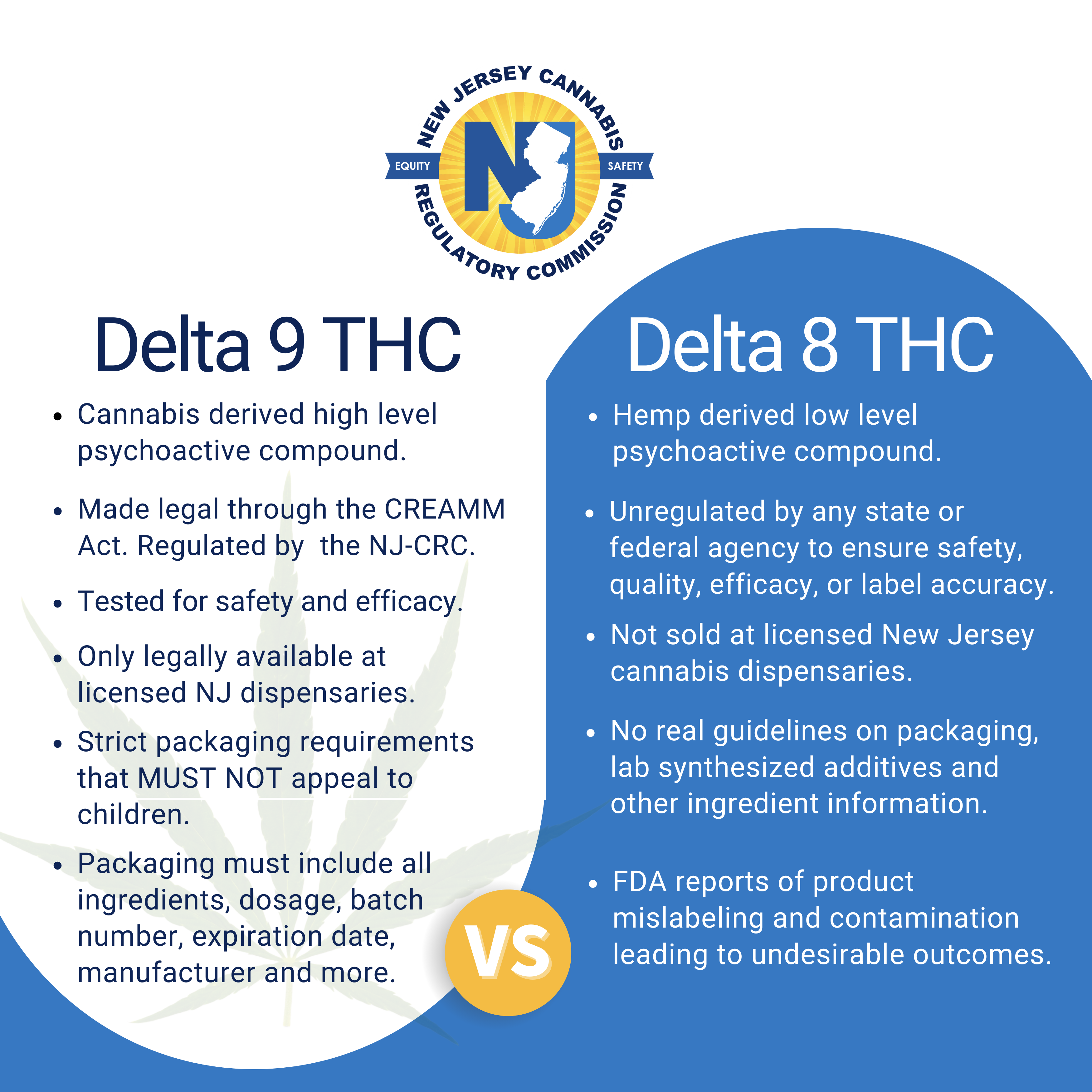
Four years of growth...and the work continues
In April, the New Jersey Cannabis Regulatory Commission (NJ-CRC) turned four years old and with that, we reflect on how far the state’s cannabis industry has come. Born out of a vision for safe, equitable, and responsible cannabis regulation, the NJ-CRC was established to bring structure and integrity to an industry that once operated in the shadows. While there is much to be done in New Jersey's market, the NJ-CRC is emerging as a national model for how to build a legitimate and inclusive cannabis marketplace from the ground up.
 In the last four years, the NJ-CRC has continued to support the Medicinal Cannabis Program (MCP) and has built a foundation for the recreational market that is rooted in transparency, public engagement, and meaningful access to economic opportunities. The Commission has been listening to patients' concerns through avenues like surveys and MCP Town Halls. The agency has also worked to ensure that small businesses, entrepreneurs from historically underserved communities, and social equity applicants are not just welcomed but are prioritized through the application process.
In the last four years, the NJ-CRC has continued to support the Medicinal Cannabis Program (MCP) and has built a foundation for the recreational market that is rooted in transparency, public engagement, and meaningful access to economic opportunities. The Commission has been listening to patients' concerns through avenues like surveys and MCP Town Halls. The agency has also worked to ensure that small businesses, entrepreneurs from historically underserved communities, and social equity applicants are not just welcomed but are prioritized through the application process.
In its fifth year, the agency is focused on improving the MCP for patients, growing a responsible industry, and helping more New Jerseyans realize the dream of business ownership. Key to that improvement and growth is the Commission’s work with stakeholders to update the MCP rules and working with municipal leaders to understand their role in the licensing and regulation process, smoothing the path for cannabis entrepreneurs.

To further support entrepreneurs and businesses, the NJ-CRC collaborates with the New Jersey Business Action Center (NJBAC) Cannabis Training Academy (CTA), which offers free technical training to both current and aspiring cannabis entrepreneurs, and the New Jersey Economic Development Authority (NJEDA) that provides grants. The CTA offers more than 60 free, online courses from 28 instructors focusing on cannabis business application and licensing. The NJEDA has awarded 46 Joint Ventures grants. Of the 46 grant recipients, 29 (63%) are currently open and operating. This includes 22 dispensaries, 3 manufacturers, 3 cultivators, and 1 testing lab. These agencies supply valuable resources to help new and existing license holders navigate startup challenges, access capital, and scale their ventures sustainably. On May 13th, the New Jersey Economic Development Authority (NJEDA) announced the Cannabis Business Development (CBD) Grant Program, a $5 million initiative to support eligible recreational cannabis entrepreneurs. The program will provide one-time reimbursements of $75,000 to help cover state and local compliance costs and operational expenses for early-stage companies.
Consumption Areas
Applications for cannabis consumption areas are now open for social equity businesses, diversely-owned businesses, and microbusiness retailers. Other retailers can begin applying on July 2. The phased approach gives priority to businesses historically excluded from the cannabis industry. To date, six applications for cannabis consumption areas have been received.
Social Equity Excise Fee
The SEEF rate for 2025 is set at $2.50 per ounce, an increase from $1.24 in 2024. The fee is collected from cannabis cultivators when they sell or transfer products to other license types. As outlined in the CREAMM Act, revenue from the SEEF must be directed toward initiatives that support education, economic development, and social services for individuals and communities disproportionately affected by cannabis criminalization.

Market and Industry Update
Cannabis sales are continuing to grow, with over $1 billion in sales recorded in 2024 alone. Single-day sales on popular cannabis holiday, April 20, 2025, dipped to $3.9 million compared to $5.8 million the previous year, however, the entire 420 weekend generated $13.8 million in sales.
Two hundred and seven (207) municipalities, about 37% of the state, allow permitting cannabis businesses, and there is at least one licensed operation in each of the state's 21 counties. As of May 7, 2025, there are 240 dispensaries open to the public, including five that serve only registered patients, and 48 expanded Alternative Treatment Centers.
More small, local cannabis entrepreneurs are securing licenses, municipal approval, and making it to market. To date, more than 350 operational licenses and permits have been awarded, including many microbusiness licenses.
Over the coming years, the NJ-CRC has goals to update Medicinal Cannabis Program rules, reduce consumer prices by 10%, further simplify the license application process, increase the number individuals with prior marijuana convictions in the industry by 15%, and establish a social equity recognition program to encourage corporate responsibility and promote equitable opportunities.
As four years become five, which will no doubt become decades, the Commission remains focused on strengthening the cannabis marketplace through thoughtful regulation, equity-centered growth, and continued public engagement. This progress reflects a strong foundation to build upon. With sustained collaboration and a commitment to equity, the Commission is positioned to help New Jersey’s cannabis industry grow responsibly and more inclusively in the years ahead.
This post was updated on May 15th to include the NJEDA CBD Grant information.
We make it easy to stay informed about cannabis in New Jersey. We encourage you to stay engaged by participating in public meetings -- either by registering to speak or leaving written comments. Missed something? You may find all public meeting and SEEF hearing recordings here. Check out CRC High Points podcast and follow us on Instagram LinkedIn, X, Facebook and YouTube. Be sure to also check out our Safe Use page for cannabis safety information.
Previous Blog Posts

High Hopes: Guiding budding businesses with the NJ-CRC
09/5/2025
Nana Amponsah, business development representative at NJ-CRC, talks about her role, as part of the Office of Diversity & Inclusion, in identifying challenges cannabis entrepreneurs face, providing assistance to applicants and new businesses wherever possible, and acting as a liaison between cannapreneurs and other state agencies that provide support. She also explains how NJ cannabis business development differs from other fields, emphasizing the continuous need for support.

Tips for SMART Gatherings This Holiday Season
11/26/2025
The holidays are a time for food, fun, laughter, and connecting with the people who make life sweeter. And as more adults in New Jersey choose to enjoy, or gift legal cannabis during the season, the NJ-CRC has launched its second safe-use campaign, S.M.A.R.T., to help keep celebrations (relatively) stress-free. S.M.A.R.T. is an easy way to remember the basics of responsible cannabis use, especially when travel is constant, roads are chaotic, homes are busy, and curious little ones are wandering.

Cannabis and PTSD
10/20/2025
Everyone feels pain at some point—whether it’s a sore back after a long day, a pounding headache, or stomach cramps that just won’t let up. But for some people, pain isn’t temporary. It’s a constant part of daily life. Anxiety disorders are the most common qualifying condition for New Jersey’s Medicinal Cannabis Program (MCP). However, various forms of pain also rank highly on the list of qualifying conditions. Specifically, chronic pain related to musculoskeletal disorders is the second most common condition, migraines are fourth, and chronic pain originating from visceral sources ranks fifth.
 Official Site of The State of New Jersey
Official Site of The State of New Jersey


